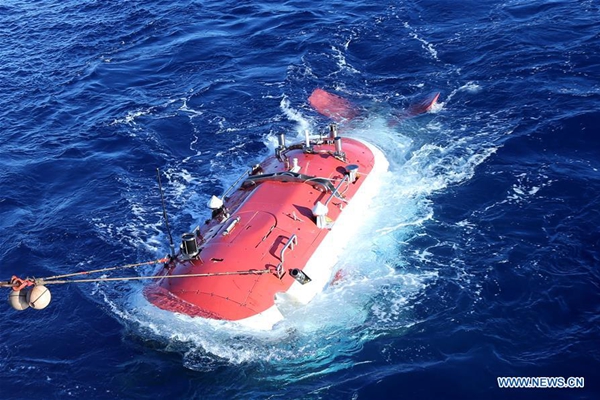Total votes cast under recent leaders
The Conservatives under Mrs May polled 13.667 m votes this time.
This is more than Labour under Tony Blair at his peak in 1997 when he polled 13.518m, and more than he polled in 2001 when he had a landslide in seats – he polled just 10.724 m.votes
Theresa May’s leadership at 13.667 m was well ahead of the Conservatives led by David Cameron who managed 11.34 m in 2015 and just 10.73 m in 2010 despite the banking crash under Labour.
It also is massively better than John Major in 1997 after his ERM European disaster, when he polled just 9.6m.
William Hague took the prize for the worst Conservative performance of the last half century with only 8.357m.votes. Michael Howard lifted it modestly in 2005 to 8.784 m.
How to govern in the new Parliament
The least bad option from here is for Mrs May to lead a Conservative government, commanding her 317 MPs. Assuming the 7 Sinn Fein MPs do not attend as before, and allowing for 1 Speaker and 3 Deputy Speakers, a party needs 320 MPs to have a majority. On most votes therefore Mrs May commanding 317 will win, as the Opposition MPs rarely all turn up and rarely all vote the same way.
There are discussions with the DUP. It seems likely the DUP will often want to support government proposals with or without an Agreement. It may be possible to reach an Agreement that effectively creates a 327 vote base for the big votes. This will not include any Conservative changes of attitude and voting behaviour towards moral and conscience issues like civil partnerships and abortion. Even without an Agreement the DUP should be willing to vote through the legislation for Brexit, and to support the government should another Opposition party bring a motion of No confidence. The government is not talking of a coalition. On Brexit there are also a few Labour Eurosceptic MPs who would never vote against it. The whole Labour party was elected on Thursday on a pledge to honour Brexit, so they have limited scope to vote against the Brexit legislation, the main Bill to be taken this year through the Commons.
I do not think another early election would solve anything. It is quite likely the voters would say they want a balanced Parliament with no overall single party majority. It is too soon for the two main parties to shift their platform enough to make a difference. In order to be taken seriously by the EU and the wider world the UK government has to accept it has sought the mandate of the people four times in the last three years in the two constitutional referenda and in two General elections. It is high time Parliament and government now got around to implementing the wishes of the people as expressed in those democratic events. We are a democratic country with accountable politicians, not a permanent political debating society shifting our views without ever implementing them. My judgement is none of the main parties want an early election, and many voters do not favour it either.
Some, especially the BBC correspondents who seem to see themselves as makers more than reporters of news, say the Conservative party needs a Leadership election. I disagree, as do most of my Parliamentary colleagues. Whilst there are Conservatives sore at the failure to gain a majority, party members see no obvious single agreed successor and no obvious simple way of getting to a successor. Taking three months off governing now would send the wrong message to the EU and others. Theresa May has three great advantages. She did help the party win more votes than at any time since 1992, so she has the biggest personal mandate in the new Commons. She is well versed and prepped for the Brexit negotiations which must take centre stage imminently. She has more support than any rival amongst the MPs. As she says she wants to be Leader she should be supported.
It may be helpful to remind you of the rules regarding a leadership election for those who disagree with me. Unless the Leader resigns, it takes 15% of the MPs (now 48) to sign a letter requesting a vote of confidence in the Leader, and then requires 50% plus of the MPs to vote No confidence. (159 MPs). When we were pressing Mr Cameron to hold a referendum there were rumours that we would put in the then requisite number of letters. We had more than twice as many MPs wanting a referendum as we needed letters. We did not do so and saw no need to. Instead we kept him in touch with the build up of numbers for a referendum. We knew for many months we could not win the No confidence vote, so damaging him by demanding a contest without winning seemed a futile and bad idea. It was when we got to 120 MPs and said we were confident we could get to 150 that he reconsidered the Referendum and agreed to one. We did not have to explain the arithmetic to him or suggest some hotheads might seek to remove him. He was rightly not unduly worried if 45 MPs had a big disagreement with him, but knew 150 would be very dangerous.
The UK cannot allow a further delay in opening the formal negotiations on our future relationship with the EU. We have already had a long delay enforced by the Courts, and a further delay from the EU which has also spanned an election. People living here from the EU want certainty, Uk citizens on the continent want certainty, businesses want certainty. That means engaging as soon as possible and getting some decisions.
Scholar: Chinese innovative talent education should go beyond knowledge
Innovative talent education in China should look beyond mere knowledge accumulation, and protect curiosity and imagination and cultivate sound values in students, said Qian Yingyi, counsellor of China’s State Council in Beijing on June 9.
|
|
|
Qian Yingyi, counsellor of China’s State Council and also dean of School of Economics and Management at Tsinghua University, delivers a lecture on innovative talent education in Beijing on June 9. [Photo/Xinhua] |
In a lecture, Qian, who is also the dean of School of Economics and Management at Tsinghua University, said the innovation-driven development of a nation requires innovative talents with creative thinking, with this quality dependent not only on knowledge but also curiosity and imagination.
Qian’s remarks came in the wake of China’s annual national entrance exam, in which a record 9.4 million students took part this time,
He said that, though China is the most populous country in the world and educates the world’s largest number of students, its achievements in science and technology, arts and humanities, new products, brands and business model remain scanty.
“Why is there the shortage of innovative talents under our education system?” Qian reiterated the question which was once raised by Qian Xuesen, Father of the Chinese missile program, 25 years ago. The answer was that the education of innovative talents required an innovative approach of its own.
He highlighted several critical factors – curiosity, imagination and sound values for future educational reform to reflect on.
In his view, the notion “knowledge is power” seems to prevail however, education does not equal knowledge. He quoted a few sentences from the world-renowned physicist Albert Einstein, to highlight the factors that he thought should be valued in education reform, namely: “I have no special talents. I am only passionately curious” and “imagination is more important than knowledge’. He Illustrated the thought in a formula “creativity = curiosity /imagination * knowledge.” Qian said knowledge invariably accumulates with time, but it is not the same case when it comes to curiosity and imagination, which depend more on the educational environment and methods.
The curiosity and imagination so intense during childhood may fade away with time or under pressure, especially under exam-oriented education, so student curiosity and imagination should be protected to become innovative talents, he stressed.
In the lecture, Qian also emphasized the cultivation and guidance of sound values in students under innovative talent education. He said that innovative education should guide students to have a “purpose” and even a “higher purpose” to overcome any anxiety about achieving quick success and gaining instant benefits.
Only by educating students to uphold sound values can there be more innovations, and, indeed, more revolutionary innovations, he emphasized.
Chinese submersible Jiaolong to dive in Yap Trench
|
|
|
China’s manned submersible Jiaolong surfaces after its dive in Yap Trench, June 9, 2017. Jiaolong completed its 150th dive on Friday since 2009. [Photo/Xinhua] |
China’s manned submersible Jiaolong will conduct two dives in the Yap Trench on Sunday and Tuesday.
The upcoming dives will be the final dives of China’s 38th oceanic scientific expedition that started on Feb. 6, according to scientists on the ship.
Before reaching the Mariana Trench and the Yap Trench in June, Jiaolong had successfully completed two stages of operation in the Indian Ocean and the South China Sea.
Jiaolong descended to 6,488 meters in the Yap Trench on Friday, which was its 150th dive since August 2009.
Jiaolong reached its deepest point of 7,062 meters in the Mariana Trench in June 2012.


